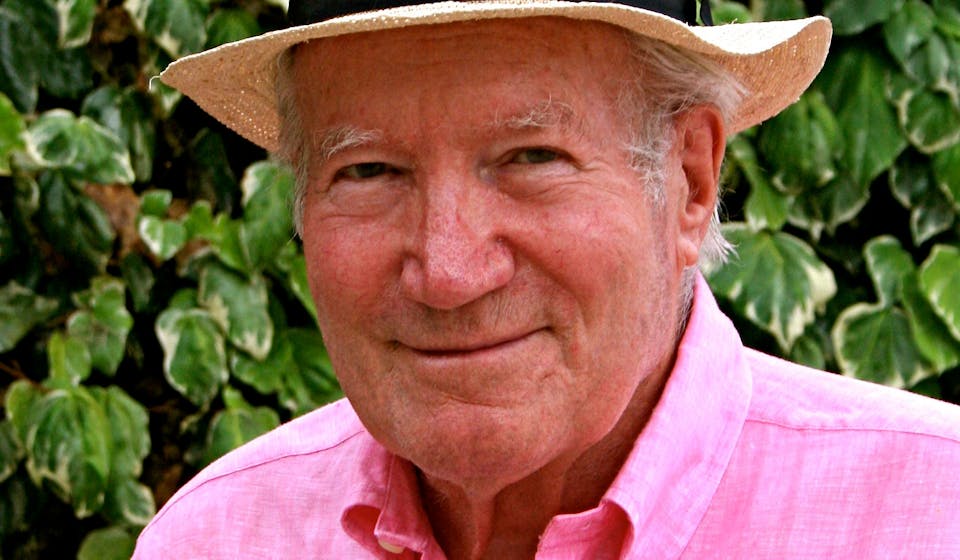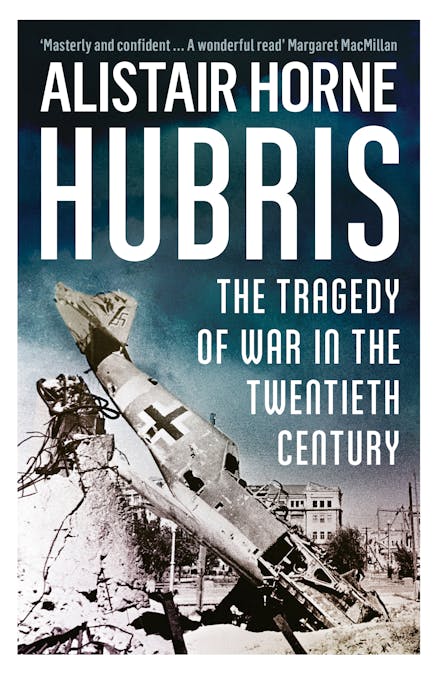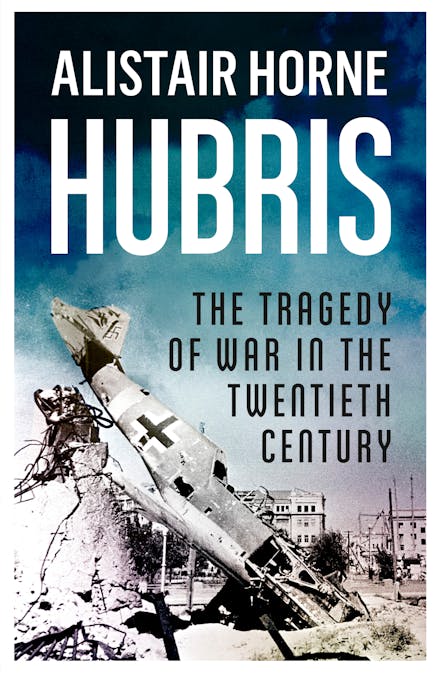Imprint
- W&N
- W&N
Prose: non-fiction, General & world history, 20th century history: c 1900 to c 2000, Military history
Six battles that changed the course of the twentieth century, and the one trait that links them all: hubris.
Alistair Horne has been a close observer of war and history for more than fifty years. In this wise and masterly work, he revisits six battles that changed the course of the twentieth century and reveals the one trait that links them all: hubris. From the Battle of Tsushima in the Russo-Japanese War of 1905 to Hitler's 1941 bid to capture Moscow, and from the disastrous American advance in Korea to the French surrender at Dien Bien Phu, Horne shows how each of these battles was won or lost due to excessive hubris on one side or the other.
A dramatic, colourful and stylishly written history, HUBRIS is an essential reflection on war from a master of his field.
Praise for Hubris: The Tragedy of War in the Twentieth Century
-
The case against the awful consequences of military hubris is not hard to make. But Sir Alistair makes it with erudition and eloquence ... his narrative is never dull; his judgements are informed by a weary understanding of human folly - THE ECONOMIST
-
A penetrating study ... It is difficult to know whether to admire more the author's mastery of his subject or his literary skills - THE SPECTATOR, Books of the Year 2015
-
I can think of no one better to tackle the daunting subject of hubris and the punishments that so often follow than Alistair Horne. He brings the necessary wisdom, vast knowledge of the past and understanding of human nature to show the effects of hubris in modern warfare ... A wonderful read.
-
This is Alistair Horne's 25th book and it is filled with the insights that can come only from a lifetime of studying war. Hubris is his title and his leitmotif ... but there is no hubris in the author himself, who approaches the challenges of writing about Oriental conflicts with a due humility, as well as his customary literary skill
-
The ancient Greeks used the word 'hubris' to describe ... the arrogant belief that man could challenge the gods and survive ... Horne uses this sobering reflection to illuminate the history of war in the first half of the 20th century, which he does with the elegant readability and sharp insight familiar from his long career - SUNDAY TELEGRAPH
-
Horne is always readable and he has a keen eye for sometimes overlooked connections. One need not agree with Alistair Horne's choice of his analysis to welcome a thought-provoking contribution to an old historical theme. - TIMES LITERARY SUPPLEMENT
-
In this well written, deeply researched, and persuasively argued book, Horne, the venerable British military historian, looks at six critical battles of the 20th century, focusing on what he argues is a constant that links all of them: the hubristic arrogance exhibited by those on the losing end. In military history, the word hubris is most often used to explain one of the primary flaws of American Vietnam War policymakers, but Horne looks across the 50 years that preceded that engagement ... Horne convincingly argues that "infection by hubris" is alive and well today, and he rounds out the work by discussing ways that 21st-century leaders can work to avoid it - PUBLISHERS WEEKLY (USA)

Alistair Horne
Alistair Horne was educated at Le Rosey, Switzerland, and Jesus College, Cambridge. He ended his war service with the rank of Captain in the Coldstream Guards attached to MI5 in the Middle East. From 1952 to 1955 he worked as a foreign correspondent for the DAILY TELEPGRAPH. In 1969 he founded the Alistair Horne research fellowship in modern history, St Antony's, Oxford. His numerous books on history and politics have been translated into over ten languages, he was awarded the Hawthornden prize (for THE PRICE OF GLORY) and the Wolfson prize (for A SAVAGE WAR OF PEACE). In 1992 he was awarded the CBE; in 1993 he received the French LA gion d'Honneur for his work on French history and a Litt.D. from Cambridge University; in 2003 he was knighted for services to Franco-British relations. He died in 2017.































.png?auto=compress&w=150&h=60&fit=crop&fm=jpg)

.png?auto=compress&w=150&h=60&fit=crop&fm=jpg)


